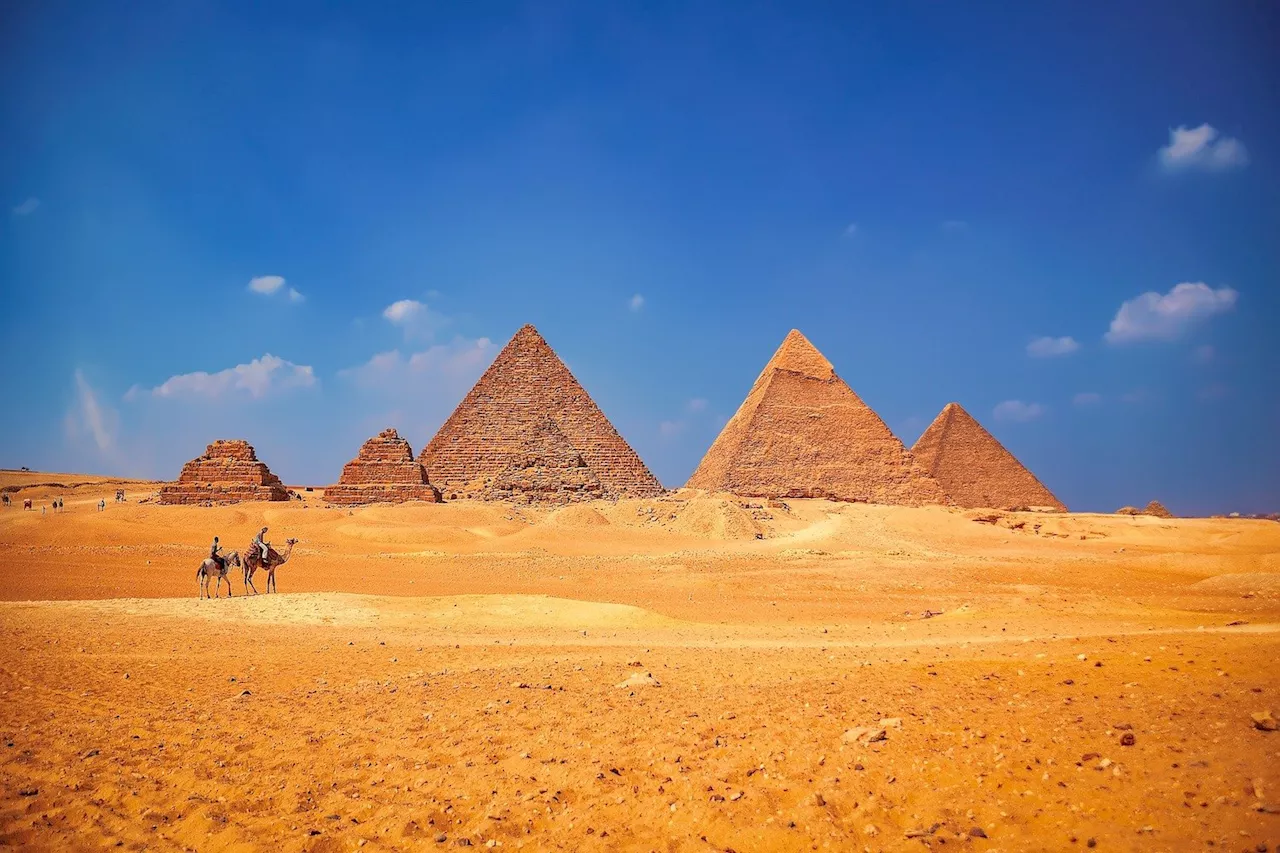Egyptian archaeologists recently uncovered an ancient bronze sword bearing the cartouche of Ramesses II during excavations at a military fort in Housh Eissa. The find, announced by the Egyptian Ministry of Tourism and Antiquities, sheds light on the daily lives and military activities of soldiers who served under the famed pharaoh, believed to be the ruler referenced in the Book of Exodus.
Egypt ian archaeologists recently found an ancient sword belonging to the military of Ramesses II, the pharaoh that scholars believe was referenced in the Book of Exodus. The Egypt ian Ministry of Tourism and Antiquities announced the find in a press release on Sept. 5. The excavation took place in Housh Eissa, a city in the Beheira Governorate.
These include weapons used in battle, hunting tools, personal adornments, and hygiene items, such as ivory kohl applicators, carnelian and faience beads, scarabs, and protective amulets,' Egyptian officials added. Ramesses, whose name is also spelled Ramses, was born in 1303 B.C. and died in 1213 B.C. He is believed to be the pharaoh that ruled over Egypt in the Book of Exodus.
According to biblical accounts, Moses led enslaved Israelites out of Egypt to the Desert of Paran. Although the Bible does not name the pharaoh who interacted with Moses in the Book of Exodus, most scholars believe that the text references Ramesses. Dr. Mohamed Ismail Khaled, Secretary-General of the Supreme Council of Antiquities, said in the press release that the fort was historically important to Egypt and served as a key outpost.
'he architectural units are meticulously designed, divided into two identical groups separated by a narrow passage,' the press release explained. 'This regular layout demonstrates the ingenuity of the ancient Egyptian engineers in adapting their surroundings to serve a variety of practical purposes.' For more Lifestyle articles, visit www.foxnews.com/lifestyle.
Archaeology Egypt Ramesses II Sword Book Of Exodus
United States Latest News, United States Headlines
Similar News:You can also read news stories similar to this one that we have collected from other news sources.
 3,200-year-old ancient Egyptian barracks contains sword inscribed with 'Ramesses II'Owen Jarus is a regular contributor to Live Science who writes about archaeology and humans' past. He has also written for The Independent (UK), The Canadian Press (CP) and The Associated Press (AP), among others. Owen has a bachelor of arts degree from the University of Toronto and a journalism degree from Ryerson University.
3,200-year-old ancient Egyptian barracks contains sword inscribed with 'Ramesses II'Owen Jarus is a regular contributor to Live Science who writes about archaeology and humans' past. He has also written for The Independent (UK), The Canadian Press (CP) and The Associated Press (AP), among others. Owen has a bachelor of arts degree from the University of Toronto and a journalism degree from Ryerson University.
Read more »
 Ancient remains of Egyptian army barracks and a bronze sword unearthed by archaeologistsArchaeologists have unearthed the ancient remains of an Egyptian army barracks and the artifacts left there, including a still-shiny bronze sword engraved with the name of King Ramses II in hieroglyphics.
Ancient remains of Egyptian army barracks and a bronze sword unearthed by archaeologistsArchaeologists have unearthed the ancient remains of an Egyptian army barracks and the artifacts left there, including a still-shiny bronze sword engraved with the name of King Ramses II in hieroglyphics.
Read more »
 Destiny 2’s Sword Week Has Broken A Non-Sword Exotic In A Good WayI’ve been writing about video games, television and movies for Forbes for over 10 years, and you may have seen my reviews on Rotten Tomatoes and Metacritic. I cover all manner of console and PC games, but if it’s about looting or shooting, I’m definitely there. If I’m watching something, it’s usually science fiction, horror or superheroic.
Destiny 2’s Sword Week Has Broken A Non-Sword Exotic In A Good WayI’ve been writing about video games, television and movies for Forbes for over 10 years, and you may have seen my reviews on Rotten Tomatoes and Metacritic. I cover all manner of console and PC games, but if it’s about looting or shooting, I’m definitely there. If I’m watching something, it’s usually science fiction, horror or superheroic.
Read more »
 Ancient sword from the era of Moses, Book of Exodus uncovered in EgyptEgyptian archaeologists have announced that they recently discovered a bronze sword bearing the symbol of King Ramesses II, the pharaoh mentioned in the Book of Exodus.
Ancient sword from the era of Moses, Book of Exodus uncovered in EgyptEgyptian archaeologists have announced that they recently discovered a bronze sword bearing the symbol of King Ramesses II, the pharaoh mentioned in the Book of Exodus.
Read more »
 Egyptologists find ancient sword possibly wielded against the mysterious ‘Sea Peoples’Laura is a science news writer, covering a wide variety of subjects, but she is particularly fascinated by all things aquatic, paleontology, nanotechnology, and exploring how science influences daily life. Laura is a proud former resident of the New Jersey shore, a competitive swimmer, and a fierce defender of the Oxford comma.
Egyptologists find ancient sword possibly wielded against the mysterious ‘Sea Peoples’Laura is a science news writer, covering a wide variety of subjects, but she is particularly fascinated by all things aquatic, paleontology, nanotechnology, and exploring how science influences daily life. Laura is a proud former resident of the New Jersey shore, a competitive swimmer, and a fierce defender of the Oxford comma.
Read more »
 Ancient Egyptian Pyramid Builders Were Poisoned by Copper, Study SuggestsIt's unclear if residents living in the shadows of the Giza pyramids suffered health effects, but the finding offers a glimpse into how they lived.
Ancient Egyptian Pyramid Builders Were Poisoned by Copper, Study SuggestsIt's unclear if residents living in the shadows of the Giza pyramids suffered health effects, but the finding offers a glimpse into how they lived.
Read more »
